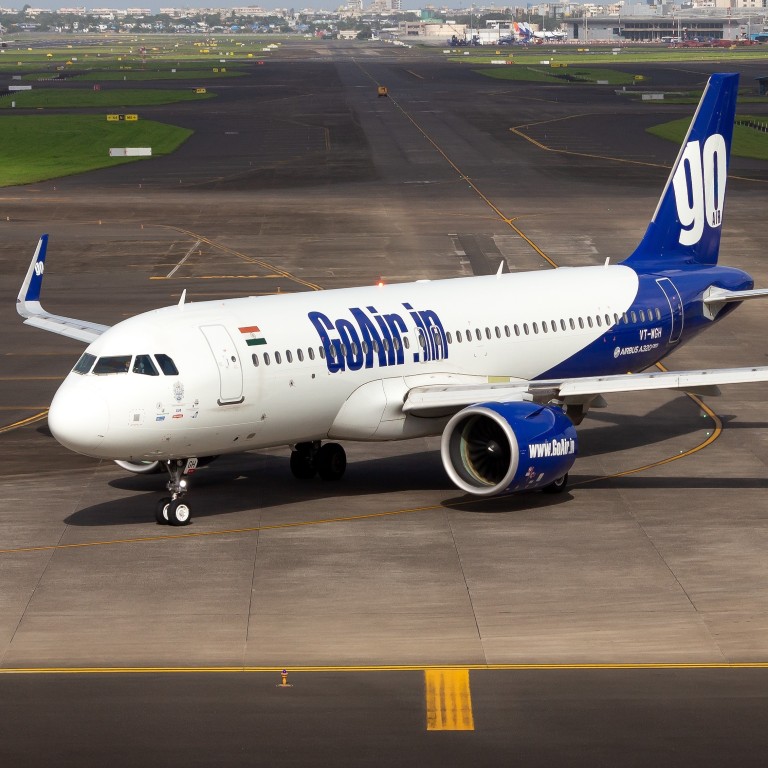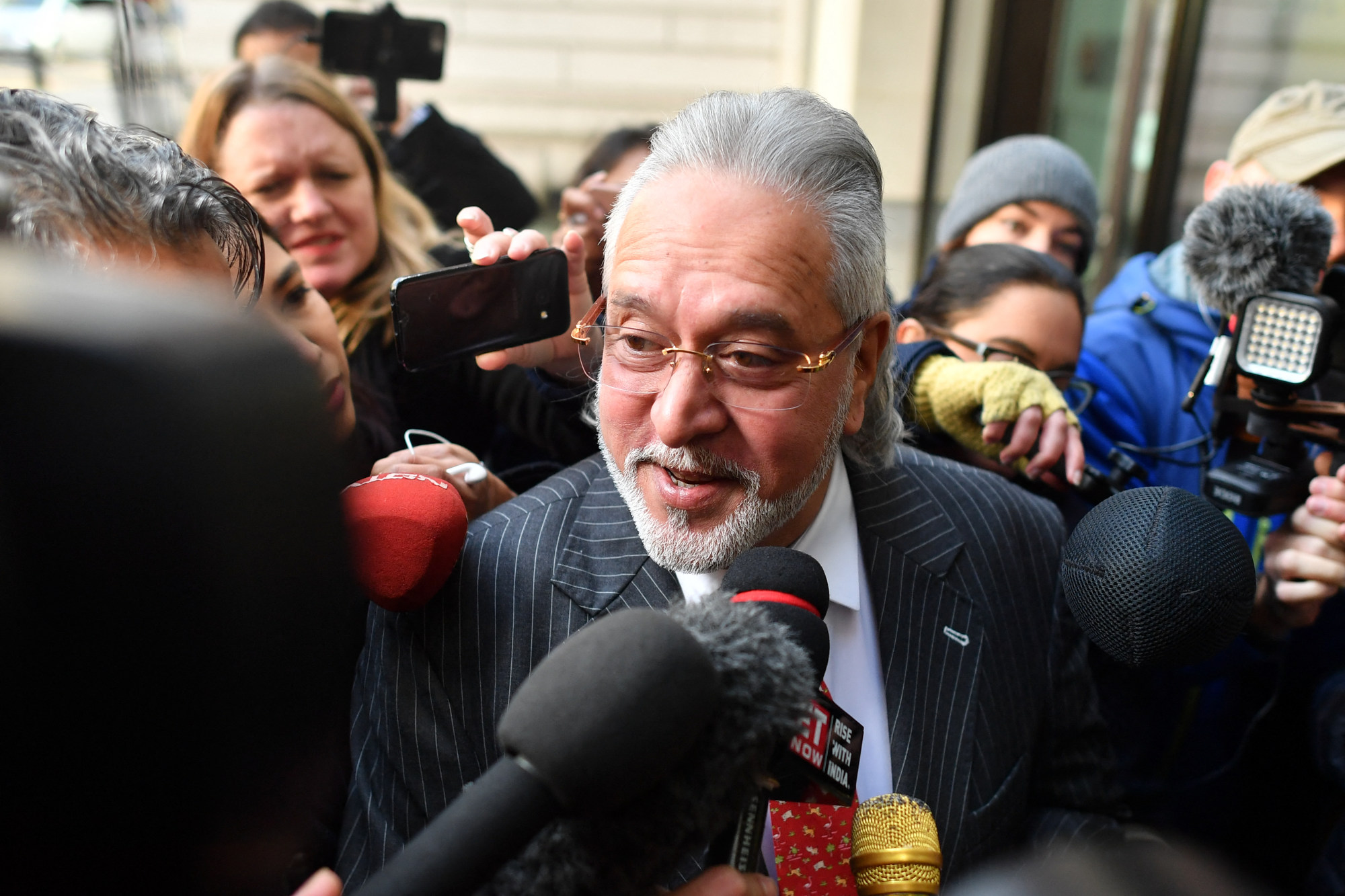
Grounded for good? India’s Go poised to join list of billionaires’ failed airlines
- If Go Airlines closes, it would be the 12th Indian airline to do so this century, despite all having a vast and increasingly mobile population at their door
- Chasing market share, Go took on high debts to pay aircraft leases, airport fees and salaries when jets were grounded during Covid-19
Another Indian airline backed by a billionaire is on the brink of shutting down for good, having tried and so far failed to attract a saviour after entering bankruptcy protection in May.
Go Airlines India’s chances are fading. Chief Executive Officer Kaushik Khona quit at the end of November, saying he could not get the carrier flying again, and that staff had not been paid for six months. Go flight attendants and pilots are looking for jobs elsewhere.
On Friday, Go announced in a post on X, formerly Twitter, that it had cancelled all scheduled flights until February 4, extending a grounding that began in May.
If Go collapses for good, it would be the 12th Indian airline to do so this century, despite all having a vast and increasingly mobile population at their door. Go’s backers spoke of the challenge of operating with prohibitively high costs, particularly on fuel, and simultaneously needing to offer cut-price fares.
Indian airlines’ record plane deals ‘would be serious threat to Mideast hubs’
Jindal Power – Go’s sole potential buyer under its insolvency resolution process – has decided not to bid. Local media reported that Jindal could not assess Go’s value because it is unclear how many planes it will have, after the aviation regulator signalled its aircraft should be returned to lessors.
Go, which has 54 Airbus SE A320neos stuck on the ground, did not respond to requests for comment. Jindal also did not respond to requests for comment.
What next?
Go owed about 65 billion rupees (US$780 million) to financial creditors as of April and its total liabilities were 115 billion rupees.

“The resolution process isn’t going anywhere,” Bajaj said. “The company is already at a stage where liquidation is required” because closed businesses can rarely be revived, he said.
Grounded airlines can lose landing and parking slots, staff, planes, licences and International Air Transport Association-assigned codes used for schedules and ticketing, said Harsh Vardhan, chairman of New Delhi-based Starair Consulting.
New owners need to clear pending dues, including to travel agents, passengers, equipment suppliers and staff, Vardhan said. “I don’t see it getting revived.”
Canada police investigate video warning Sikhs not to fly Air India
The lure of India
The country’s biggest two carriers, IndiGo and a rejuvenated Air India, are tightening their grip with a combined market share of 73 per cent. They placed record orders for more than 900 new aircraft from Airbus and Boeing this year.
Akasa Air started up in August 2022, backed by another billionaire, Rakesh Jhunjhunwala, who died that same month. A little over a year later, it has a market share of around 4 per cent, carrying over 1.5 million passengers a month.
Many others have struggled.
Former billionaire, Vijay Mallya, founded Kingfisher Airlines in 2003, but it stopped flying in 2012 under debt of 86 billion rupees. Indian authorities are still trying to extradite Mallya from London to face charges of alleged financial fraud. His lawyers have said the order to return to India ignored evidence and misunderstood the circumstances that led to Kingfisher’s collapse.

South India-based Air Costa folded in 2017. Jet Airways, once India’s second-biggest carrier and previously majority owned by former billionaire Naresh Goyal, has been struggling to resuscitate itself after halting operations in 2019.
Dubai-based Murari Lal Jalan and Florian Fritsch, chairman of Kalrock Capital Management, said in September they had invested 3.5 billion rupees into Jet, fulfilling the financial requirements of its court-approved resolution plan. While they intend to restart Jet next year, the airline has not been handed over yet.
Back to Go
Go was established in 2005 by billionaire Nusli Wadia’s Wadia Group, which also runs Britannia Industries and Bombay Dyeing and Manufacturing. Wadia is the grandson of Mohammed Ali Jinnah, the founder of Pakistan.
Chasing market share, Go took on high debts to pay aircraft leases, airport fees and salaries when jets were grounded during Covid, Starair’s Vardhan said.
Why do airlines keep going belly up in India’s soaring aviation market?
The global aviation industry was hit hard by the pandemic, with at least 68 airlines involved in bankruptcy protection. The challenge of operating in India became even harder as passenger traffic more than halved.
Congestion in supply chains exacerbated troubles for Go, which has said Pratt & Whitney is to blame, as half of its fleet had to be grounded while awaiting parts and replacement engines. Pratt, a unit of RTX Corp, has refuted the claim. IndiGo also has around 40 aircraft idled due to shortages.
Ultimately, Go failed to create a niche for itself or a reputation as an efficient airline, whereas the more successful IndiGo is renowned for its on-time record and affordable fares, and Air India for its legacy, said Vardhan.
Any revival “would’ve happened in three to four weeks”, he said. “The longer it’s grounded, the more impossible it becomes.”

